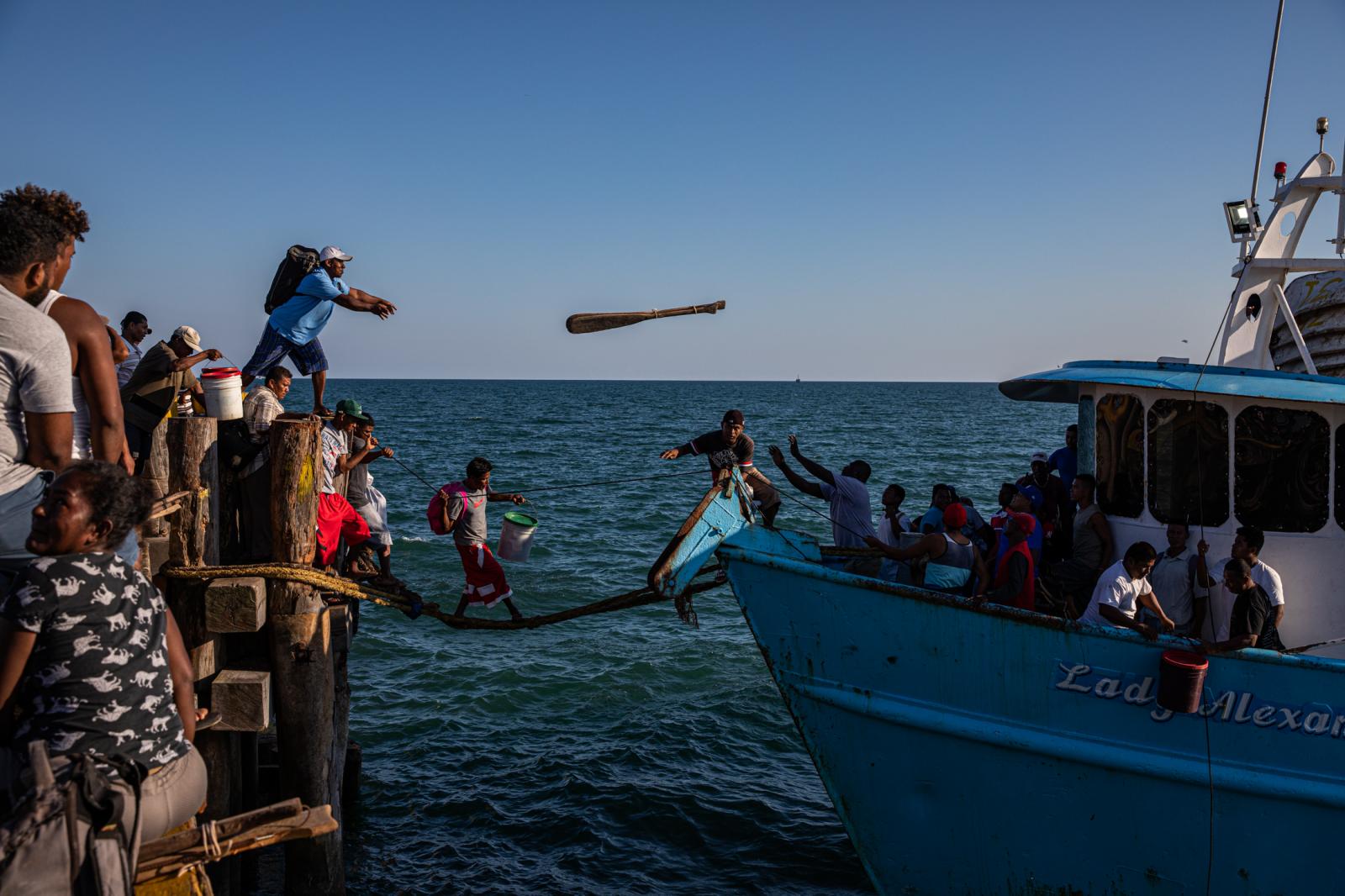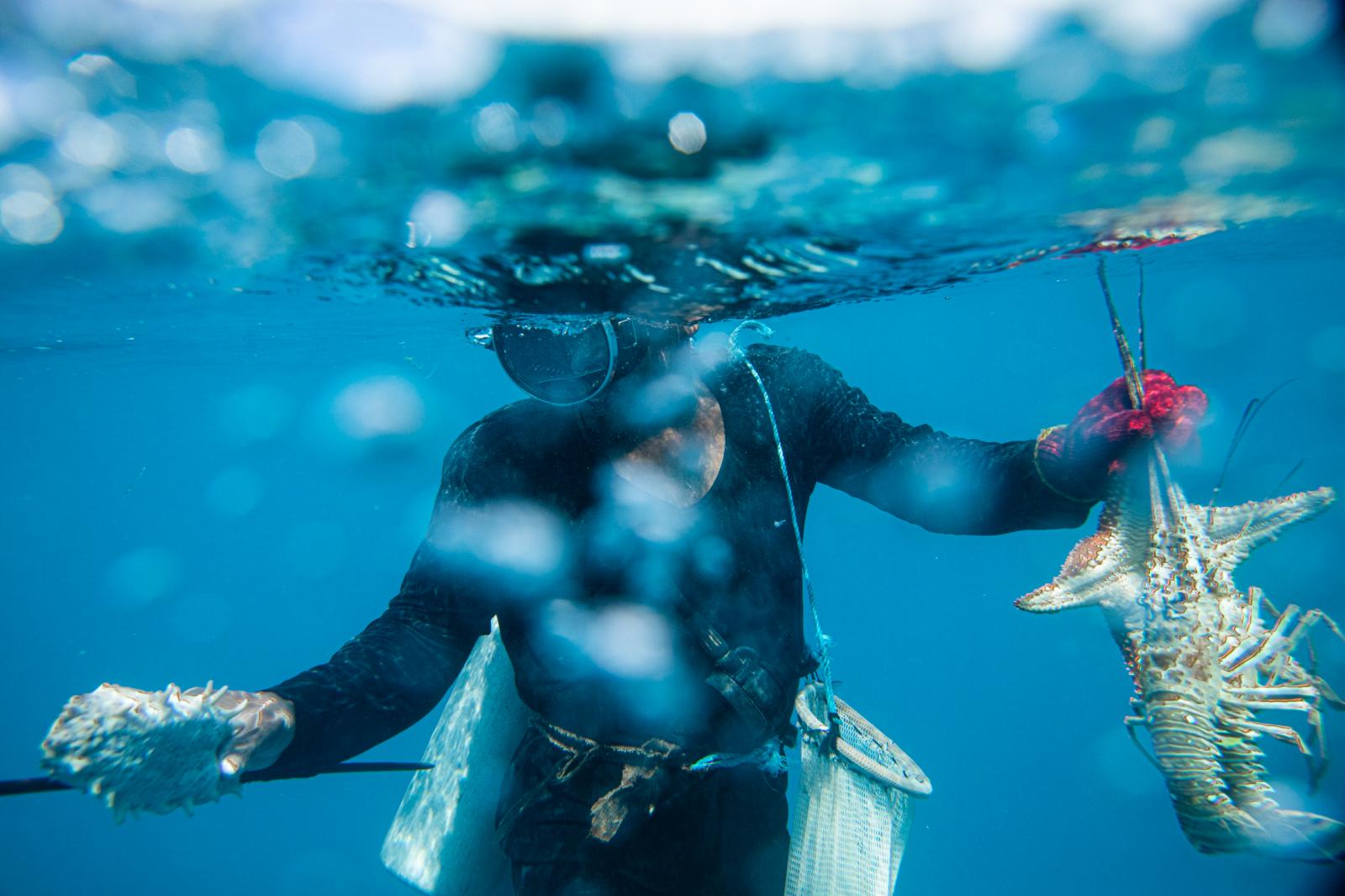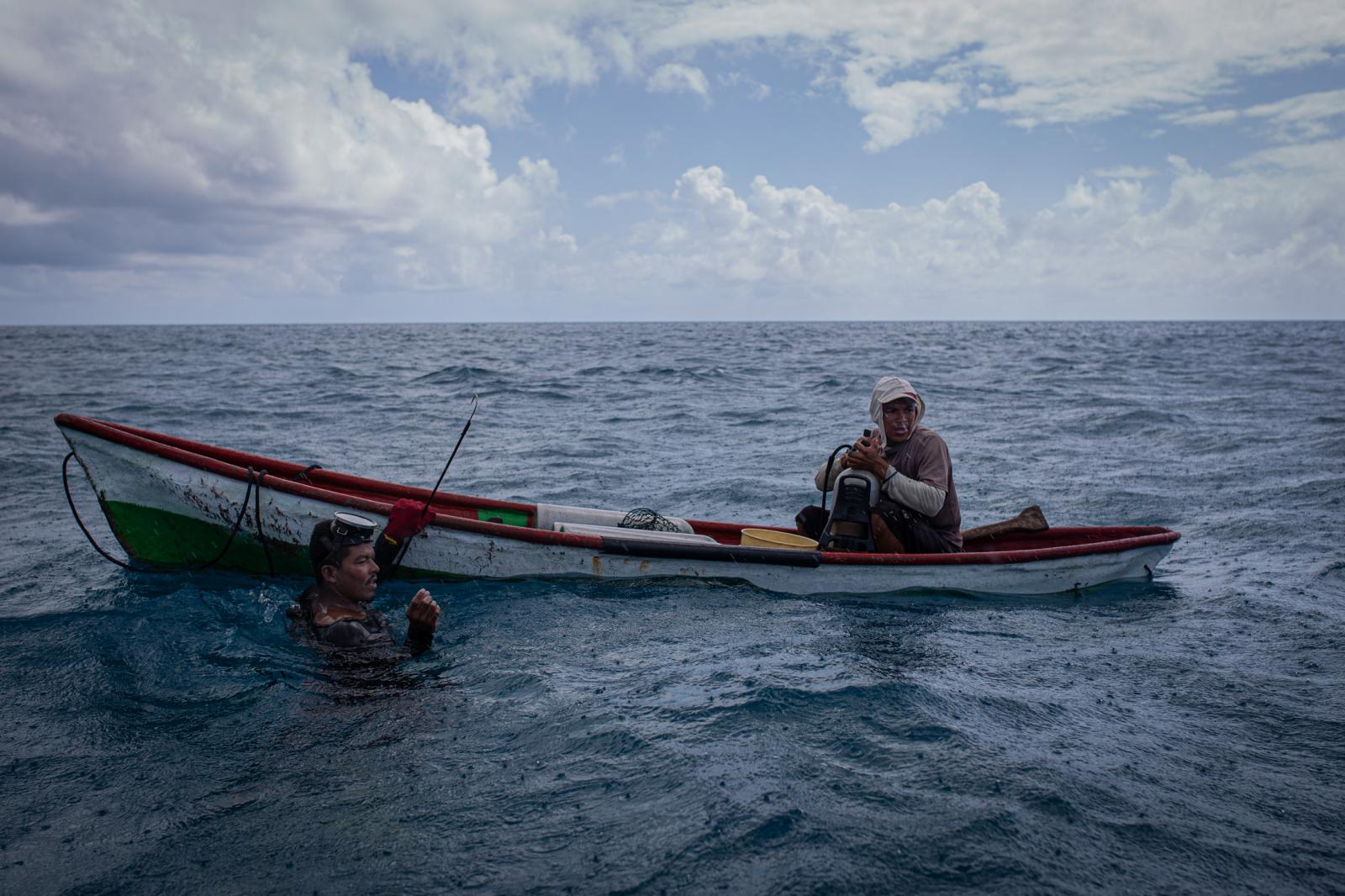Private Story
Climate change and the perils of diving for lobster on the Nicaraguan Caribbean Coast
With no professional equipment, the indigenous Miskito men free-dive as deep as 160-180 feet and are exposed to decompression sickness.
When the lobster industry in Nicaragua began in the 80s, divers had only to go 6-8 meters to find lobsters. Nowadays, the lobster population has declined, partially due to the high demand for lobster in the US, but also because of climate change scientists conclude (FAO). Rising water temperatures, changing sea currents, etc have made the lobsters move to deeper areas in the sea. In turn it has made it more dangerous for the Miskito to catch them. Every year around 100 fishermen are brought to the decompression chamber in Puerto Cabezas, but for many it is already too late. They remain paralysed, some of them also die (aprox. 1 per month). I found numbers from 2008, since 1990 over 200 fishermen had died due to decompression sickness, and aprox. 800 were injured. But ever since 2008, effects of global warming have taken their toll across the globe and this industry needs a spotlight to see how they have been affected.
For the men, this high-risk job is often the only opportunity to provide their families. But the price for them and their community is high.
GIRLS INTERRUPTED - TEENAGE FIGHTERS OF THE ELN
After the FARC gave up their weapons in mid-2017, the ELN is the last armed rebel group in Colombia. As politicians and media talk peace, the ELN is preparing for war, dangling love and justice to recruit teenagers into their ranks. In remote camps in the eastern department Chocó, they are trained to fight, as the ceasefire with the government ended in early January. The motivation for these teenagers goes beyond a political ideology. Due to a lack of opportunities, many see it as the only way to leave their homes, escape domestic violence or in search for a sense in their lives. Daily life in these camps might look like a summer camp, but their unwitting role in a complex political situation is much more sinister. The ELN is 2000-2500 strong, and judging by the speeches made to groups of children as young as 8, there are no plans to lay down their weapons.
LOS PRIMOS - INDIGENOUS TRANSGENDER WOMEN IN COLOMBIA
In the mountains of Colombia’s coffee region, colorful dressed transgender indigenous work on the lush green farms. Back home in their communities, they are not accepted due to their transgender identity. They are punished or forced to leave their villages. The Emberá, the ethnical group they belong to, are convinced that it is a contagious disease that the white men have passed them. Nevertheless, on these coffee farms, they are recognized. They work hard and every evening after returning from the fields, they wear their typical dresses, jewelry and transform into women. „I won´t go back to my community. Here I can finally be who I am and live my identity“, says Angelica one of the girls or primos“ (cousins), which they are called in the village.
Personal statement
What drives me in photography is to tell those stories of people in silenced or forgotten conflicts, humanitarian and environmental crisis that are mainly unheard and underreported. I believe it´s our duty as photojournalists to report and investigate in a nuanced way and be able to understand and communicate the personal point of view of the affected people. One of the topics I am personally engaged with are gender related stories. As a female photographer I feel the urge to give a voice to other women: surviviors of violence and courageous women who show examples of how relations of power can be changed.
For most of my stories I work in Latin America as Colombia, Nicaragua and Guatemala, southern Caucasus and East Africa. I usually investigate my own projects, financed through scholarships or my personal funding. In other occasions assignments for NGOs and international media lead me to remote areas to report.
Coming from an academic anthropological background I believe it´s important to have a holistic perspective on the world, and so on our work. It´s not only about photography skills. A compelling story depends on the storyteller’s compassion, humanity and understanding of complexity – the ability to take their audiences to far-off places but then tell the story beyond the surface image. What are the people I am working with experiencing and perceiving? What is their individual motivation? How are they affected by their society and the global conflicts? And what can we learn from them?
Visual representation plays an important part in what we know of this world; and it is a powerful media to facilitate empathy, create conscouisness and connecting with the „other“. The photos I am submitting are part of those stories about silenced conflicts that need to be told: about the Miskito lobster divers in Nicaragua suffering from decompression sickness, teenage fighters of the last active rebel group in Colombia and indigenous transgender women. Besides documenting what is most challenging for me in photography is to communicate feelings and emotions I experience in the interaction with people. Beyond differentcultural or socio-economical backgrounds I seek for human conditions that bond us, universal necesities and emotions that unifies individuals and facilitate communication.
Anja Niedringhaus left an incredible legacy about those people living in conflict zones as Iraq and Afgahnistan. I am convinced that powerful story-telling can transform peoples perception of the world and institutions and create wider consciousness and action. How can we explain in a nuanced way the complexity of conflicts? I believe that time, empathy, honesty and a critical understanding are needed in order to go beyond a monocausal explanation, which can lead to a misrepresantation of history. What drives my photography and visual storytelling is the opportunity to create impact, build connections and share my perceptions with a wide audience. I believe it´s our responsability as a journalist not only to document what we see, but to understand from a multicausal perspective the political conflicts and cultural patterns that surround us. Photography gives me the privilege to be close to the people and their stories, to feel their experiences and communicate them through my photos.













